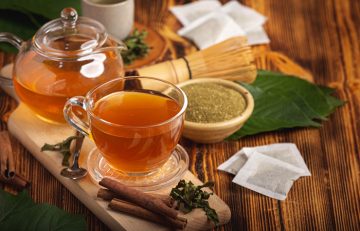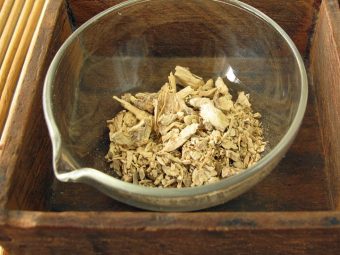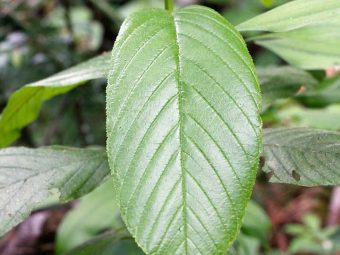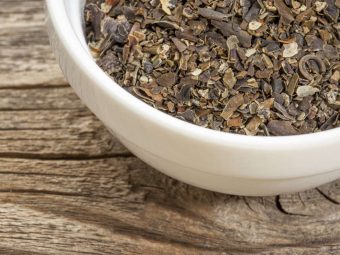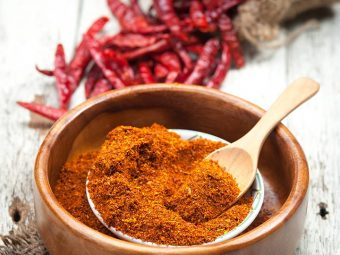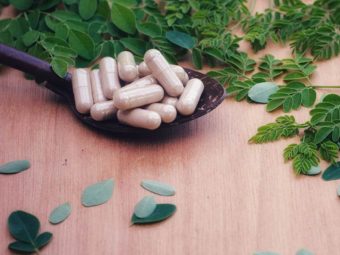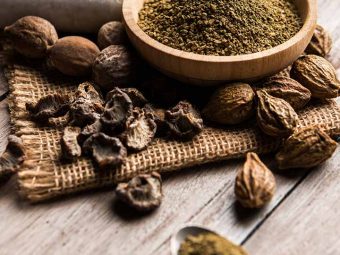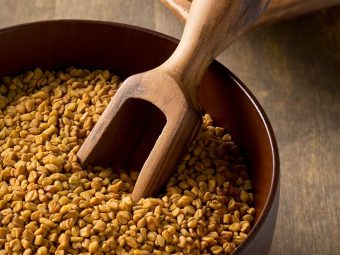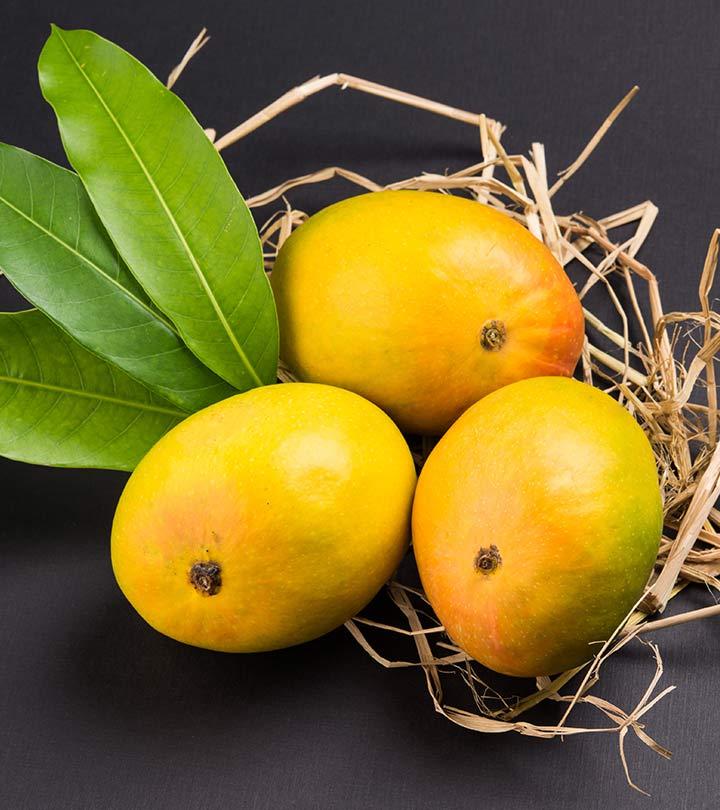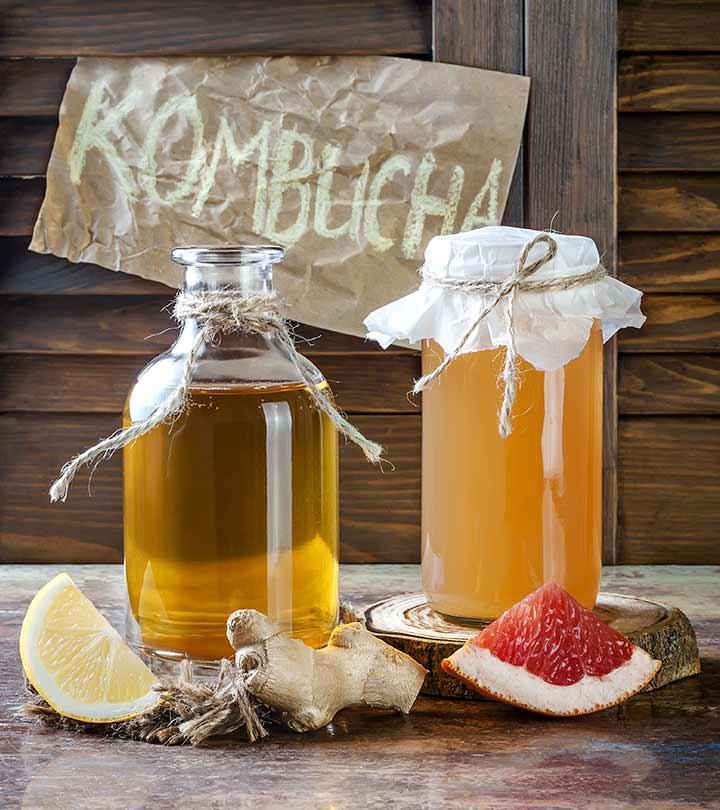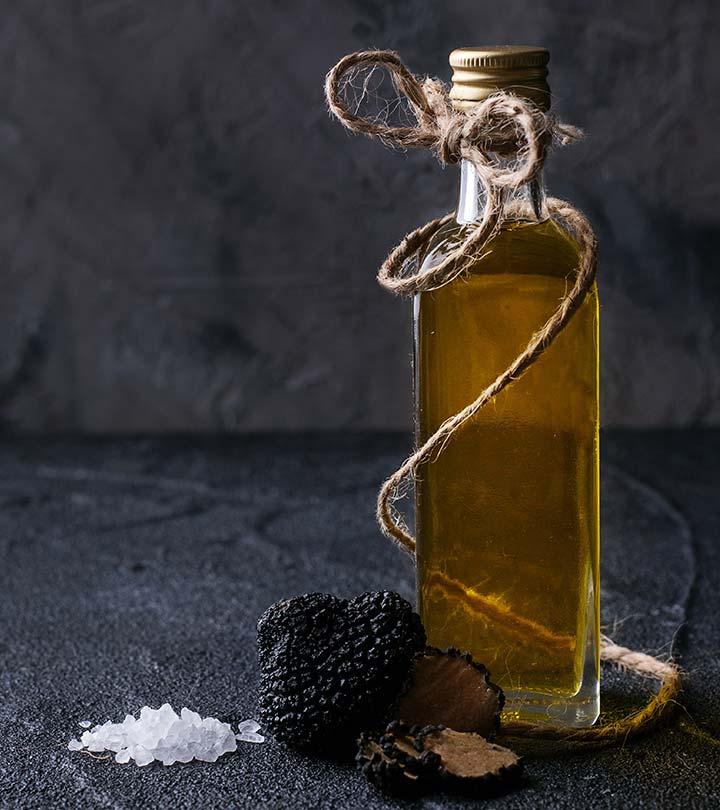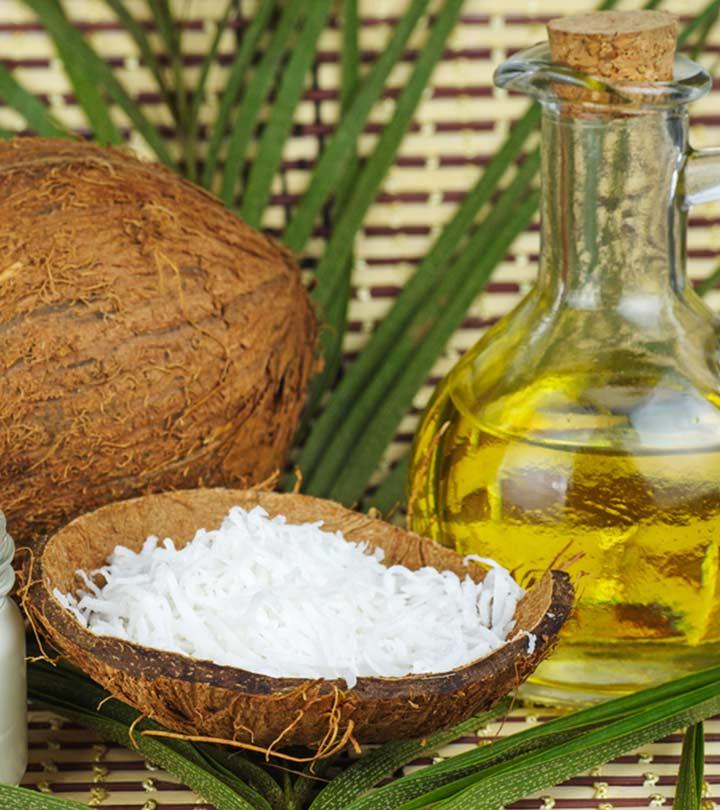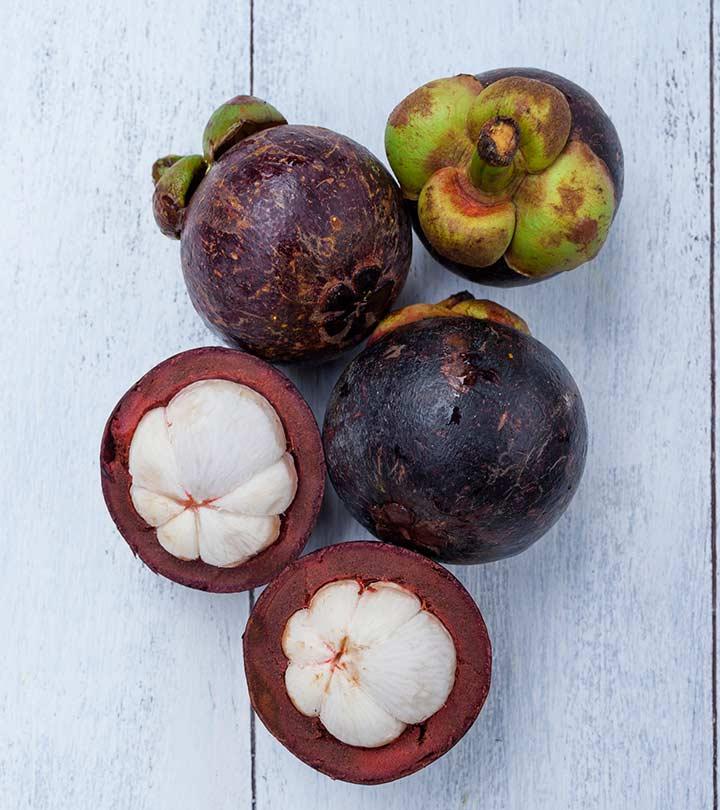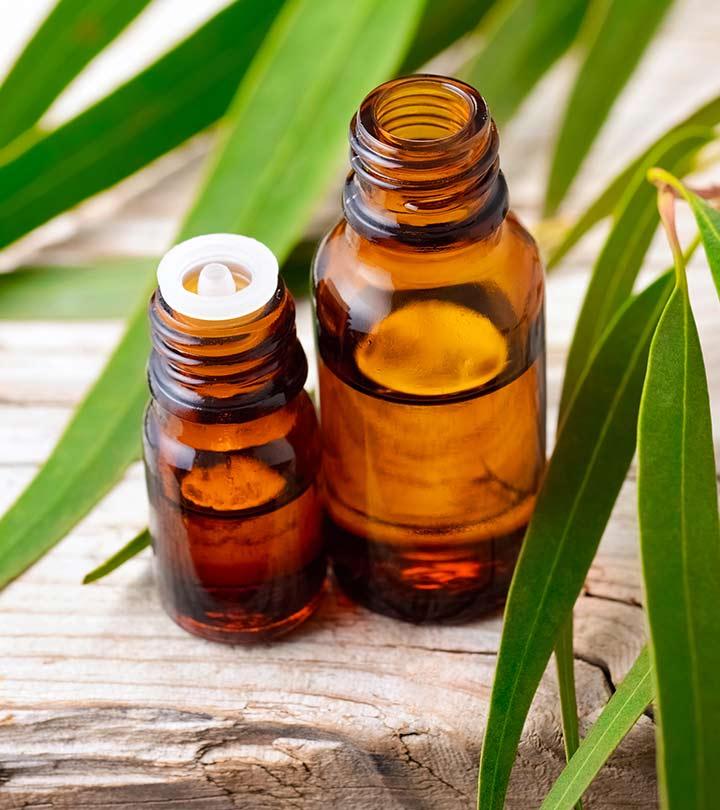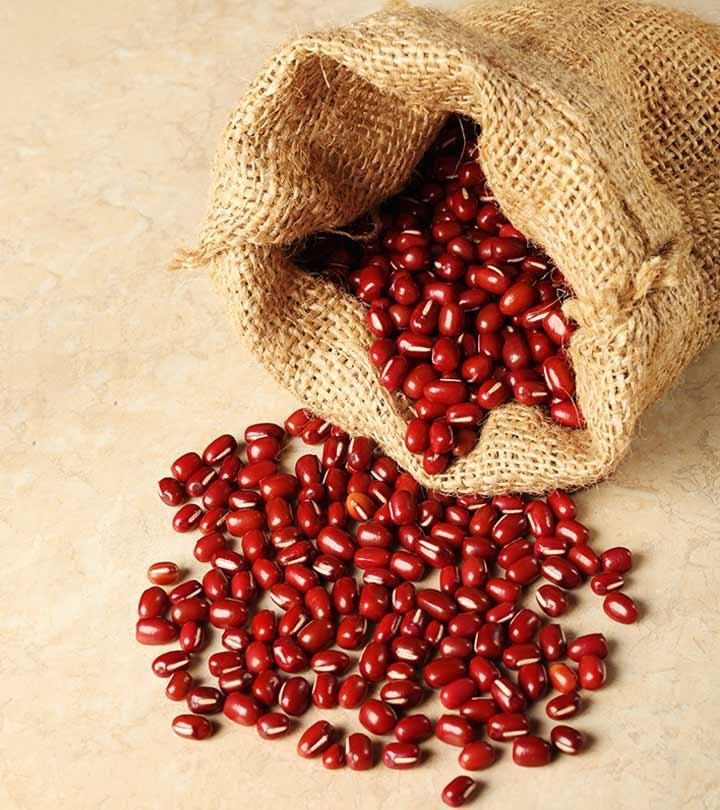Kratom Tea: Benefits, How To Make, And Potential Risks
Include this healthy beverage in your diet in moderation and eliminate various ailments.
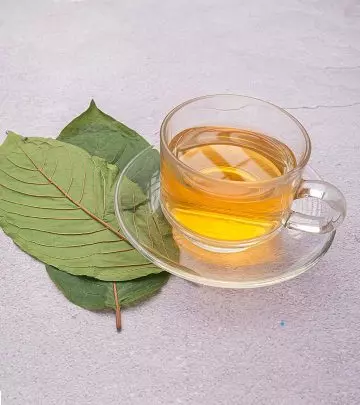
Image: Shutterstock
Kratom tea is a traditional medicine that has recently become popular for its instant energizing effects. The benefits of kratom tea are gaining the attention of many, and its stimulating properties are being researched. The tea is made from kratom leaves and contains alkaloids. These compounds are believed to have analgesic, calming, and anti-depressant effects. If you’re curious to learn more about what kratom tea is good for and how it can potentially benefit your health, including dosage guidelines and possible side effects, be sure to read this article. Keep scrolling to find out all you need to know about kratom tea.
 Know Your Ingredient: Kratom Tea
Know Your Ingredient: Kratom TeaWhat Is It?
A green or yellow beverage prepared by brewing kratom leaves or their powder in water.
What Are Its Benefits?
It may help alleviate pain and relieve anxiety and depression.
Who Can Consume It?
Anyone can consume this except people on opioids and sedatives.
How Often?
You can consume 1 to 2 cups of krakom tea daily.
Caution
Avoid consuming krakom tea if you are pregnant. Excess consumption may cause loss of appetite, nausea, or itching.
In This Article
What Is Kratom Tea?

Kratom tea is prepared by brewing kratom (Mitragyna speciosa) leaves or mixing their powder in water. It has been used in Southeast Asia for centuries. It is said that field workers used to chew these leaves to increase their endurance, energy, and heat tolerance and to relieve fatigue.
 Trivia
TriviaBut, is kratom tea safe to drink? Check out the answer in the next section.
Is Kratom Tea Safe?
The U.S. Food and Drug Administration (FDA) has not approved kratom and its related products for medical use (1). But, it has been used in Asia to ward off fatigue, cough, diarrhea, and as an alternative to treat opioid withdrawal (2).
A review published in Substance Abuse and Rehabilitation suggests that kratom intake in small doses (1-5 grams) may act as a stimulant and an analgesic (pain killer) besides increasing energy levels. But, a higher dosage (5-15g) was shown to have a sedative effect, similar to that of opioid drugsi XA class of drugs that contain opiates and are widely used for pain relief. However, moderation is advised as they can cause dependence. like morphine and codeine. It makes people feel tired and euphoric, and may even cause seizures, coma, impaired memory function, and death (3).
According to a study, Kratom, a herbal product containing mitragynine and 7-hydroxymitragynine, acts as an opioid receptor agonist, providing pain relief and stimulant or sedative effects. Its use has been associated with an increase in poison center calls (from 18 exposures in 2011 to 357 in the first 7 months of 2018) and potential deaths (from July 2016 to December 2017). Kratom exhibits stimulant effects at low doses and sedative effects at higher doses, with adverse effects such as gastrointestinal symptoms and agitation. Users commonly experience cravings and withdrawal symptoms. A significant proportion, 43%, reported negative adverse events during kratom abstinence. High doses can lead to opioid-like toxicity, requiring naloxone. Severe adverse events have been reported when combined with opioids, benzodiazepines, or other medications.
That said, kratom tea may also have certain health benefits if taken in an appropriate dosage. Read on to learn all about them.
Health Benefits Of Kratom Tea
Kratom tea is a herbal remedy that is believed to provide various benefits, such as anxiety relief, energy boost, relaxation, mood enhancement, stress relief, and more, making it a popular choice as a natural supplement in alternative medicine. Here are some of its benefits:

1. May Relieve Chronic Pain
The use of kratom is increasing rapidly, especially in the United States for managing opioid withdrawal and pain (2). Kratom (leaves or powder) tea contains more than 40 active compounds. Mitragynine, a major alkaloid compoundi XA class of naturally occurring nitrogenous bases beneficial for humans as they have many medicinal and physiological uses. found in kratom, binds to opioid receptors in the brain and helps relieve chronic pain (4), (5).
A blogger shared her experience of using kratom to aid with relief from chronic pain. She explains, “After two back surgeries and years of occasional, yet serious discomfort, I’ve come to realize that I needed a non-addictive indication of controlling the spells of serious back discomfort that creep up from time to time; kratom fits that bill perfectly. Kratom is definitely an all-natural solution that really performs for me…. I occasionally use kratom, I really feel better… period. Life is good (i)!”
2. May Treat Depression And Anxiety
Kratom has anti-anxiety, antipsychotic, and antidepressant effects. Consuming it may improve your mood and treat depression and anxiety (6), (7). However, further research is needed to understand the benefit of kratom.
A study conducted at the University of Florida (USA) found that kratom has a similar effect as opioid pain relievers. It relieves pain and mood disorders (8). Lyophilized kratom tea (LKT) was also shown to help relieve pain and reduce opioid physical dependence (9).
Some people also use kratom to improve their sexual performance and enhance their physical endurance. However, more extensive and high-quality studies are needed to understand these mechanisms. Also, there is a need to set specific and credible guidelines for the management of kratom intake.
Making kratom tea is a quick and easy affair. Learn how to do it in the next section.
Note: Kratom has not been approved by the FDA for medical use, and considering its multiple side effects, it is generally considered unsafe. Hence, consult your doctor before making or consuming this tea.
How To Make Kratom Tea
What You Need
- 3 cups of water
- Kratom powder(depends on usage)
- Honey (optional)
Process
- Bring the water to a simmer in a saucepan.
- Remove the water from the stove and add the kratom powder. Allow the tea to steep for 15 minutes. You can steep for a shorter period for a mild tea.
- Strain out the kratom powder.
- Add honey or any sweetener of your choice to the tea.
- Serve at room temperature.
- You can also make ice tea by adding ice cubes.
 Quick Tip
Quick TipWondering how long kratom tea stays in your body and shows its effects. Find out in the next section.
How Long Does Kratom Stay In Your System?
A small dose of kratom tea (powder) starts showing its effects in around 10 to 15 minutes. The effects of higher doses may last up to eight hours, while the peak effects are believed to last for 1.5 to 2.5 hours after the intake.
It takes one day for your body to eliminate half of the kratom you consume and five days to completely drain it out from your body. It also depends on your body’s metabolism.
While kratom tea does offer some great health benefits, it also comes with its set of side effects. Find out if its side effects outweigh its health benefits in the next section.
Risks Associated With Kratom Tea

Excess intake of kratom tea may cause side effects like (10), (11):
- Loss of appetite
- Weight loss
- Hyperpigmentation
- Itching
- Sweating
- Dry mouth
- Nausea
- Insomnia
- Increased urination
- Constipation
- Dehydration
- Psychosis
Long-term consumption of this tea may be addictive (2). A study conducted on 2,312 persons linked its use with toxicities that caused agitation, tachycardiai XRefers to heart rate over 100 beats per minute. Symptoms include shortness of breath, chest pain, and dizziness. , drowsiness, vomiting, and confusion, seizure, withdrawal, hallucinations, respiratory depression, coma, and cardiac or respiratory arrest. The findings suggest kratom poses a public health threat due to its availability as a herbal supplement (12). Besides, one to eight weeks of its regular intake (powder or tablets) may lead to the onset of acute liver injury (13).
Trista Best (RDN) says, “An individual who has consumed this tea for a long period can experience withdrawal symptoms like rage, muscle aches, and insomnia. So the risks simply are not worth the perceived benefits.”
Kratom tea is restricted in many countries due to the limited research available on its health benefits. The FDA does not monitor the purity of kratom supplements. Besides, kratom may interact with some drugs (14). Hence, consult a doctor before consuming kratom tea or its supplements.
Kratom tea has a safer alternative with a similar stimulant effect. What is it? Scroll down to find out.
Best Alternatives For Kratom Tea
Kristin Gillespie (RD, MS) says, “For those seeking the stimulant effect of kratom tea, a great alternative is coffee (which comes from the same plant family). Coffee also has a natural stimulant effect but is felt to be much safer than kratom tea.” Drinking three to four cups of coffee a day is linked with certain health benefits (15).
Infographic: Kratom Tea: Everything You Need To Know About It
Kratom is popular for its energizing effects and is believed to relieve pain and anxiety. While it may soothe your senses, excess usage may prove to be detrimental to your health.
Find out more about kratom, its origins, and the FDA’s stance on its use in the infographic below. Illustration: StyleCraze Design Team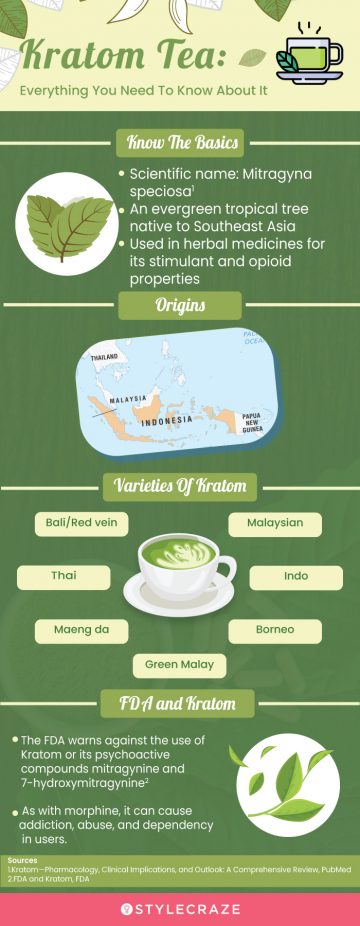
The Final Takeaway
Kratom is a popular Southeast Asian herb renowned for its stimulant properties. Many rely on its energizing properties to start their day. The herb is loaded with many beneficial nutrients, vitamins, and minerals. Kratom tea benefits your body in a number of ways. It may help relieve chronic pain due to its rich alkaloid content. Kratom tea is also good for your mental health as it may uplift your spirits and relieve anxiety. However, the FDA does not approve kratom and its products for medicinal use. Moreover, excess consumption may cause loss of appetite or insomnia or lead to addiction. If you experience any side effects, limit your consumption and seek medical advice.
Frequently Asked Questions
What is kratom CBD tea?
It is a tea blend made with a combination of kratom tea and CBD tea. Since both give a relaxing, calming effect, they are often used together.
Can kratom hurt your heart?
Yes, studies suggest that kratom may affect your cardiac rhythm and lead to adverse cardiovascular effects like hypertension and tachycardiai XRefers to heart rate over 100 beats per minute. Symptoms include shortness of breath, chest pain, and dizziness. (16).
Can kratom help PTSD?
Yes, studies and surveys suggest that Kratom consumption can help improve mental health and result in beneficial effects in reducing the symptoms of PTSD (17).
Key Takeaways
- Kratom tea has recently gained popularity due to its immediate stimulating benefits.
- It can help with chronic pain and alleviate depression and anxiety.
- To make the tea, you need 3 cups of water, kratom powder, and honey (optional).
- However, long-term use of this tea may become addictive, resulting in minor to serious side effects such as drowsiness, hyperpigmentation, dehydration, or psychosis.
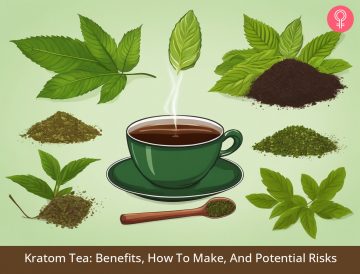
Image: Stable Diffusion/StyleCraze Design Team
Ready to explore the world of kratom tea? Unveil the art of brewing this natural beverage by watching this video and embark on a new tea adventure!
Personal Experience: Source
StyleCraze's articles are interwoven with authentic personal narratives that provide depth and resonance to our content. Below are the sources of the personal accounts referenced in this article.
i. Kratom Tea-Making – Brewing and Dosing Ideas for the Rest of Ushttps://balikratompowder.wordpress.com/2013/07/18/kratom-tea-making-brewing-and-dosing-ideas-for-the-rest-of-us/
References
Articles on StyleCraze are backed by verified information from peer-reviewed and academic research papers, reputed organizations, research institutions, and medical associations to ensure accuracy and relevance. Read our editorial policy to learn more.
- FDA and Kratom
https://www.fda.gov/news-events/public-health-focus/fda-and-kratom - Pharmacology of kratom: an emerging botanical agent with stimulant analgesic and opioid-like effects
https://pubmed.ncbi.nlm.nih.gov/23212430/ - Biochemical Benefits Diagnosis and Clinical Risks Evaluation of Kratom
https://www.ncbi.nlm.nih.gov/pmc/articles/PMC5402527/ - Neurobiology of Kratom and its main alkaloid mitragynine
https://www.sciencedirect.com/science/article/abs/pii/S0361923016300582 - Kratom—Pharmacology Clinical Implications and Outlook: A Comprehensive Review
https://www.ncbi.nlm.nih.gov/pmc/articles/PMC7203303/ - The Potential for Kratom as an Antidepressant and Antipsychotic
https://www.ncbi.nlm.nih.gov/pmc/articles/PMC7309668/ - Kratom use and mental health: A systematic review
https://www.sciencedirect.com/science/article/abs/pii/S0376871617305586?via%3Dihub - Patterns of Kratom use and health impact in the US-Results from an online survey
https://pubmed.ncbi.nlm.nih.gov/28521200/ - Lyophilized Kratom Tea as a Therapeutic Option for Opioid Dependence
https://pubmed.ncbi.nlm.nih.gov/33017752/ - Novel Psychoactive Substances—Recent Progress on Neuropharmacological Mechanisms of Action for Selected Drugs
https://www.ncbi.nlm.nih.gov/pmc/articles/PMC5563308/ - Kratom DrugFacts
https://nida.nih.gov/publications/drugfacts/kratom - Kratom Use and Toxicities in the United States
https://pubmed.ncbi.nlm.nih.gov/31099038/ - LiverTox: Clinical and Research Information on Drug-Induced Liver Injury
https://www.ncbi.nlm.nih.gov/books/NBK548231/ - Refined Prediction of Pharmacokinetic Kratom-Drug Interactions: Time-Dependent Inhibition Considerations
https://pubmed.ncbi.nlm.nih.gov/33093187/ - Coffee consumption and health: umbrella review of meta-analyses of multiple health outcomes
https://www.ncbi.nlm.nih.gov/pmc/articles/PMC5696634/ - The Adverse Cardiovascular Effects and Cardiotoxicity of Kratom (Mitragyna speciosa Korth.): A Comprehensive Review – PMC
https://www.ncbi.nlm.nih.gov/pmc/articles/PMC8504575/#:~:text=First%2C%20kratom’s%20most%20common%20adverse - Current perspectives on the impact of Kratom use – PMC
https://www.ncbi.nlm.nih.gov/pmc/articles/PMC6612999/





